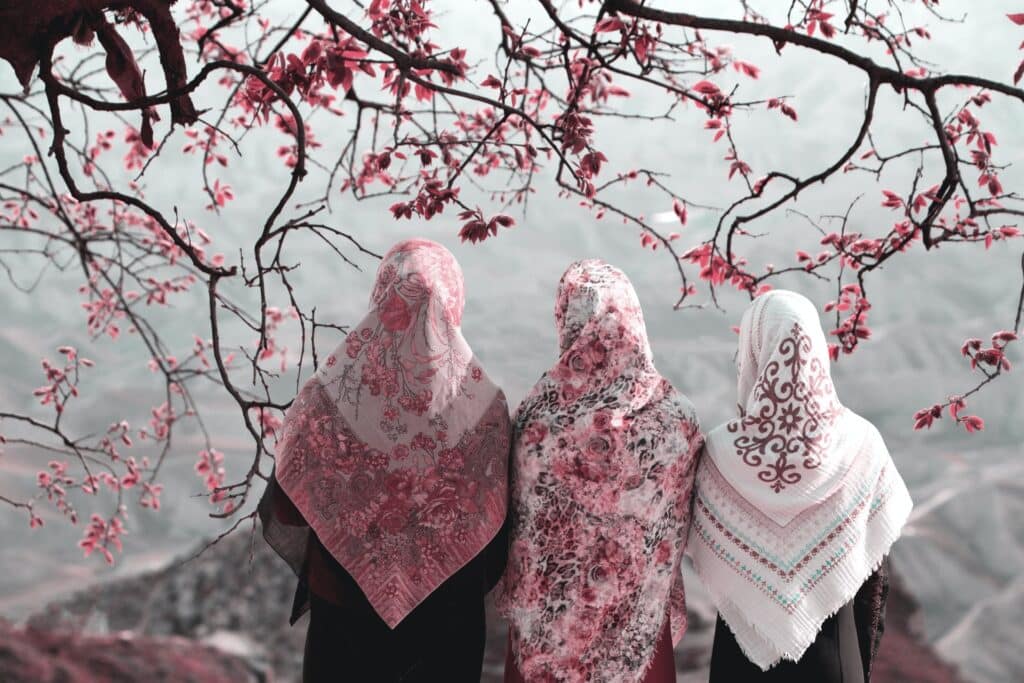Grind is our winter coed backpacking adventure. This will be our third year running it and Grind is quickly becoming our most anticipated adventure experience.
It’s important to explain how we got here. It was the summer of 2018 and I was single three years after a complicated divorce.
As a husband and father, I moved through the social circles of my faith community effortlessly. We were invited places, to picnics and dinners, to play dates and lectures. In my domesticated state, I was approachable by all, men and women.
All of that dried up when my children and their mother moved away. That was devastating. Being alone was an adjustment. But feeling suddenly cut off from society was completely unexpected.
As a newly divorced man, where was I welcome? Not at the homes of other couples. Not at the family picnics. Not even with other single men, many of whom were significantly younger than me.
It got me thinking a lot about gender dynamics in the Muslim community. As the father of four daughters, and through the networks built and maintained by their mother, I was allowed to share space with other Muslim women. Intelligent women. Bold women. Entrepreneurial women. Ascetic women. These are all qualities that I encounter readily enough in men, but with feminine twists and angles that allowed me to see things from another perspective. Those were perspectives that could be so valuable in maintaining my connection with my daughters.
But they were now 3000 miles away and without the pretext of family, there was no socially acceptable way (according to prevailing religious norms) to engage the women of my faith community.
I tried to engage anyway. It may be worth noting that I have held a nursing license for the last 24 years. My ENTIRE professional life has involved working with women, whether as their peer, their subordinate, or their superior. Most of my life has been spent in the company of professional women. I felt no internal resistance or awkwardness in reaching out to the women of my community. I have daughters. I needed some guidance and direction, and these were, after all, my sisters.
Right?
Kind of, sort of, but not really.
They are Muslim women and I am a Muslim man, after all. Clearly my agenda, should our community’s biases actually be articulated, was only to have sex with them. Or to lust after them. Or to otherwise risk some kind of romantic entanglement that would destroy our reputations for generations to come.
It’s why we have separate entrances at the mosque. It’s why we segregate dining areas at fundraising banquets. Without such provisions we would all fall into a sweating heap of orgiastic sin.
That’s not actually true, but you would think it might be based on the inexcusably stilted manner in which Muslim men and women publicly engage. And this awkwardness has serious repercussions.
I was turned away from a Muslim homeschooling organization because I wasn’t a woman. That really happened. The excuse was that they sometimes, over the course of sharing homeschooling tips, discuss their menses.
Did I mention I’m a nurse?
The possibility of menstrual conversation is a steaming pile of an excuse, with a stench that gets all the funkier the more you consider it. But I didn’t have the luxury of fully addressing that at the time. There was a seven-month stretch in the early period of my divorce where I had full custody of my daughters. Historically home-schooled by their mother, I now had the entirety of that responsibility, and the women of my community turned me away. I found lots of support outside the Muslim community, but that’s not the point.
Or is it?
When the dynamics of our faith community evolve to push us out, that’s a problem. We have, in every case, the obligation to keep our sheep in the fold. If someone leaves, let it be on them. But if someone wants in and we kick them out, there is only ignominy waiting to swallow us entirely.
That’s when Grind started to take shape. This was the winter of my life, a period of cold, hard desolation, and I would get men and women outside, into the wilderness during the coldest part of the year. I would make it hard, force them to work together, compel a recognition of one another as brother and sister, no one better than the other, with each person essential in the work of getting us all to our destination.
We staged our first Grind the winter of 2019, a three-day backpacking trip along the storied Skyline-to-the-Sea Trail through California’s Santa Cruz Mountains.
This year we did Death Valley and in January we are headed, God Willing, into Arizona’s Superstition Wilderness. This will also be the first year that we dropped the participation age from 18 to 16.
Because our young people are watching. Living as we do in a minority religious community, our children see how things are and they compare. And we are losing them in droves to a way of life that, for all of its darkness, is entirely consistent.
Secular life is without obvious hypocrisy, unlike their mothers and fathers who engage their religiously unaffiliated coworkers with an easy, accommodating grace and slam their Muslim brothers and sisters for wearing the wrong thing or walking into the wrong entrance or staying out too late in conversation.
And what of the #MeToo movement, the ascendancy of radical feminism, toxic masculinity, and the reimagining of gender? Everyone of these points of social upheaval is tied to a breakdown in communication between men and women.
Men and women need to talk, and who better to lead the conversation than the people of the Adamic covenant?
With Grind we learn that outside the rules are simple: work together or suffer.
And that’s a truth that holds just as well off-trail.
Leave a comment below for posterity or join us in the D&T Chautaqua Discord to discuss this post with other adventurous spirits from around the world.




This is such a hit home Blog for me
As a divorce Muslim man facing the challenges of a system that favored the woman and giving her more control and rights over the man in the divorce. It’s a real struggle
I’ve found myself alone and crying and struggling to fine sanity at times and to understand the test that my creator has set forth for me
There. WAS NO SUPPORT. coming from my Islamic community and the lack of female community.
I struggled with being a single dad to a daughter who was just a few months old
I had questions that I wanted to ask a sister about my baby girl.
I had no communication with her mom. about anything
My experience with my two older daughters helped me a lot and allowed me to navigate the stormy seas
The Muslim sisters kept mostly to themselves with the exception of one sister who would listen to me cry and talk and would always here me out. May Allah bless her for this kindness and for realizing that we as single dads needed to have that communication
We both found a place outside of our faith to be able to voice our feelings and share our test with others. May the almighty bless such organizations for their work and support that they show and give
I was not fortunate to be on the pass Grinds trips but I am so looking forward to this upcoming trip inshallah
The. Funny twist is that we both are in direct contact with incredible women starting with our mom and daughters.
My industry has always been surrounded by women and I see my self as a person who is well capable of having conversations and being friends to these ladies without any disrespect or any form of uncomfortable feeling between me and them
Maybe it’s a cultural thing coming from the Caribbean where we all live. Like one community.
I agree with your thought that culture is at play. What many of us are working through in the West is a distinctly Arabized version of Islam. The cultural norms of the Arab world weren’t just imported along with the teachings of the faith. They were imported AS teachings of the faith by the Saudi government in the late 70s and early 80s. Islam was here way before that, as many of our Blackamerican brothers and sisters know well, but they were seriously undermined by the massive influence of petrodollars.
Islam looks different in your native Trinidad because it reached your shores through an entirely different route: generations of Afro-Indian labor, if I understand correctly.
There are other factors, I’m sure. I’ll probably have to write a second part!